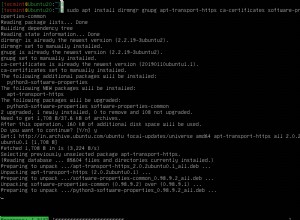Für alle mit der Abfrage verbundenen Datums- und Uhrzeitangaben müssen Sie die Werte aus dem Datumsfeld $projizieren - Anleitung hier
Das Aggregations-Framework hilft in diesem Fall – bitte sehen Sie sich die grundlegende Abfrage unten an, die eine tägliche und wöchentliche Gewichtungsaggregation hat, sodass Sie diese Abfrage für andere Zeiträume umwandeln oder eine Abfrage pro Zeitraum verwenden können:
db.timing.aggregate([{
$project : {
year : {
$year : "$date"
},
month : {
$month : "$date"
},
week : {
$week : "$date"
},
day : {
$dayOfWeek : "$date"
},
_id : 1,
weight : 1
}
}, {
$group : {
_id : {
year : "$year",
month : "$month",
week : "$week",
day : "$day"
},
totalWeightDaily : {
$sum : "$weight"
}
}
},
{
$group : {
_id : {
year : "$_id.year",
month : "$_id.month",
week : "$_id.week"
},
totalWeightWeekly : {
$sum : "$totalWeightDaily"
},
totalWeightDay : {
$push : {
totalWeightDay : "$totalWeightDaily",
dayOfWeek : "$_id.day"
}
}
}
}, {
$match : {
"_id.month" : 3
}
}
])
Beispielergebnisse für Monat 3 für meine Dummy-Daten sind unten:
{
"_id" : {
"year" : 2016,
"month" : 3,
"week" : 10
},
"totalWeightWeekly" : 600,
"totalWeightDay" : [
{
"totalWeightDay" : 200,
"dayOfWeek" : 7
},
{
"totalWeightDay" : 400,
"dayOfWeek" : 6
}
]
}
{
"_id" : {
"year" : 2016,
"month" : 3,
"week" : 9
},
"totalWeightWeekly" : 1000,
"totalWeightDay" : [
{
"totalWeightDay" : 200,
"dayOfWeek" : 4
},
{
"totalWeightDay" : 600,
"dayOfWeek" : 3
},
{
"totalWeightDay" : 200,
"dayOfWeek" : 7
}
]
}
{
"_id" : {
"year" : 2016,
"month" : 3,
"week" : 12
},
"totalWeightWeekly" : 400,
"totalWeightDay" : [
{
"totalWeightDay" : 200,
"dayOfWeek" : 7
},
{
"totalWeightDay" : 200,
"dayOfWeek" : 2
}
]
}
{
"_id" : {
"year" : 2016,
"month" : 3,
"week" : 13
},
"totalWeightWeekly" : 200,
"totalWeightDay" : [
{
"totalWeightDay" : 200,
"dayOfWeek" : 3
}
]
}
und um die Form nach Bedarf zu formen, können Sie $project phase
verwenden {$project:{
_id:0,
"year" : "$_id.year", //this could be ommited but use $match to avoid sum of other years
"month" : "$_id.month", //this could be ommited but use $match to avoid sum of other months
"week" :"$_id.week",
totalWeightWeekly:1
}}
{
"totalWeightWeekly" : 600,
"year" : 2016,
"month" : 3,
"week" : 10
}
Alle Kommentare willkommen!




